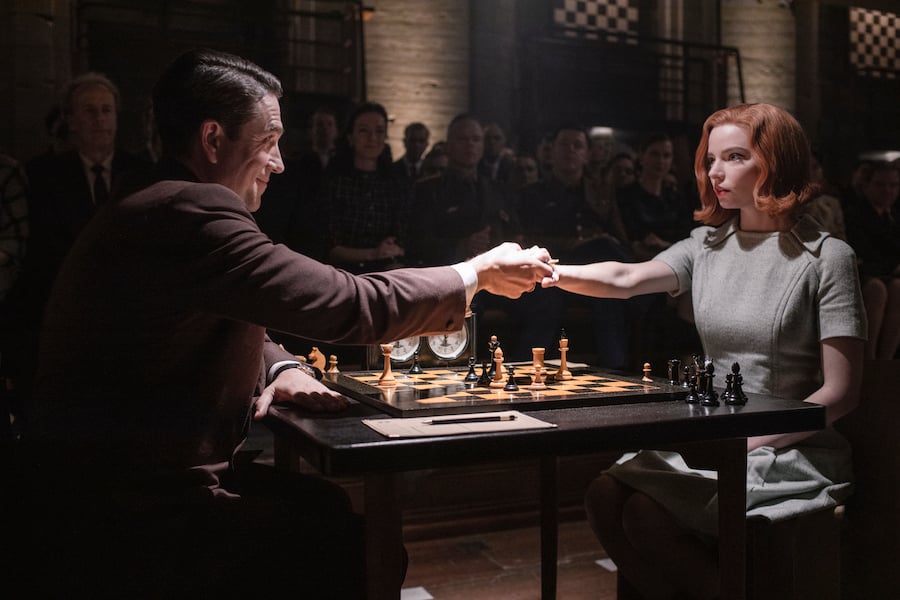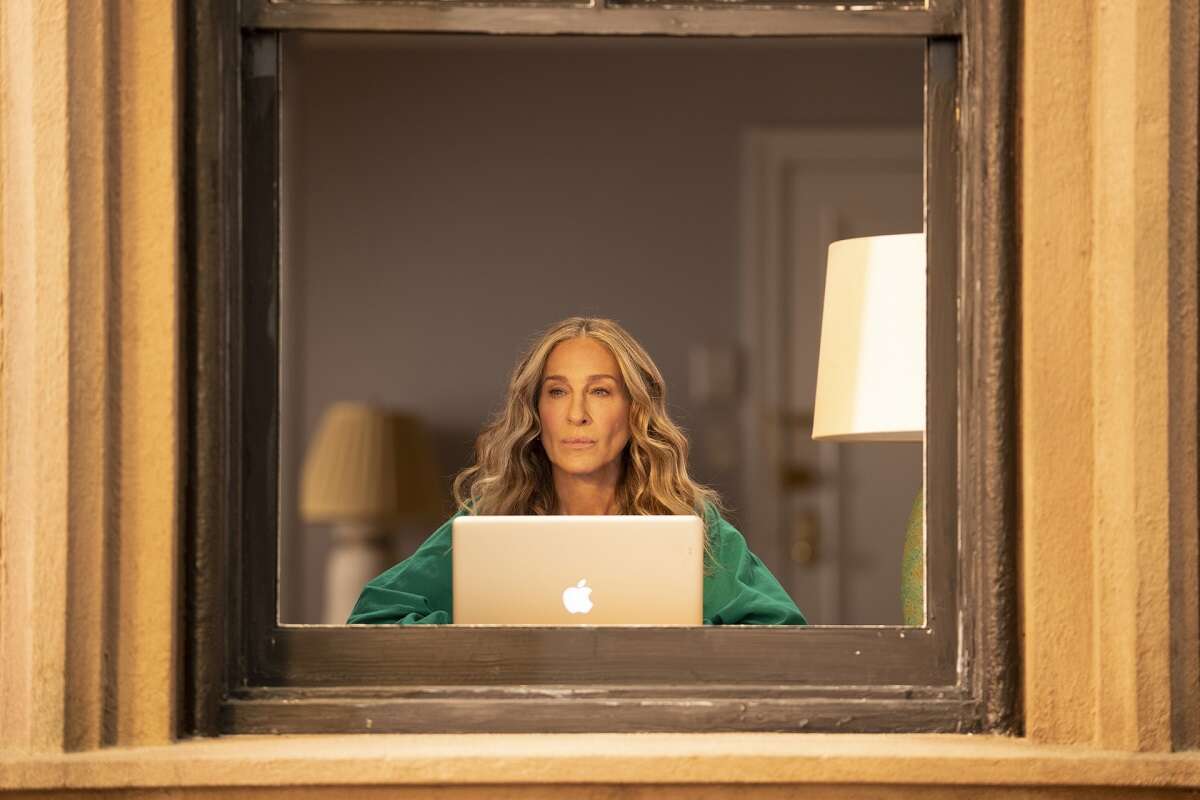‘The Queen’s Gambit’: What the Series Got Wrong and Where it Differed From Walter Tevis’ Book
This fall one of Netflix’s newest TV shows, The Queen’s Gambit, hit record numbers for the streaming giant. The miniseries ranked up a cult following, even leading to a massive upstream in chessboard purchases. The series’ is based on Walter Tevis’ 1983 novel of the same name.
The book and the show have the same basic premise: Beth Harmon (played by Anya Taylor-Joy), an orphan who develops a dependency on tranquilizers at a young age, is a chess prodigy who proves that her gender won’t stop her from becoming the best player in the world. However, the show does take some creative liberties in its adaption.

Beth’s treatment as a woman
In the TV show, Beth often discusses how she doesn’t think much about how she’s a woman entering a field of men. She just aims to get better and beat them instead. But the show does lightly touch on sexism Beth experiences. She dislikes when a reporter focuses on her gender. Beth instead wishes that the focus rather is on her skill. The show also has reporters take notice of Beth’s incredible fashion sense when attending her chess matches. While Beth’s fashion is much to be envied, her male opponents rarely are asked (if ever) about their choices of clothing.
In the book, Beth faces a more violent reaction to being a girl in chess, per Slate. A man refuses to shake Beth’s hand after her chess game triumph. In the novel, Harry Beltik (portrayed by Harry Melling in the Netflix adaption) isn’t as understanding as he is with Beth in the show when she proves that she has surpassed him in her talent at the game. He instead displays bitterness by “glaring” at her and leaves when he realizes she’s better than him.
Her attraction to Cleo
Beth shows a curiosity for sexuality at a young age in the Netflix adaption. She’s seen watching an intimate couple in the library and is amazed at how much she enjoys sex after sleeping with Benny Watts (Thomas Brodie-Sangster) while training with him in New York City. Some LGBTQ fans were pleased to see Beth’s attraction to Parisian model Cleo (Millie Brady). Beth ignores men when she meets Cleo, aiming to impress the model with her chess ability.
Later on, Beth meets up with Cleo in Paris before her huge match against Vasily Borgov (Marcin Dorociński). Beth gets swept away by Cleo, flirting with her over many drinks, with the two waking up together in the same bed the next morning before Beth blows the chess game the next day.
Taylor-Joy herself commented on her character’s attraction to Cleo in an interview with Refinery29: “From the second Beth first sees Cleo, she is fascinated by her. So with the guys in the background [at the hotel], she’s like, ‘Eh, you’re not really that interesting. Cleo, you’re cool.”
It doesn’t happen this way in the book since Cleo was a new character added to the miniseries, perhaps based on the character Jenny Baynes, per Screenrant. There also is a fan theory that Cleo is a spy working for the Russians to help them beat the inimitable Beth Harmon.
The final match

The entire series leads up to one final game against Borgov. It’s Beth’s chance to prove herself since she lost to him previously in Paris. While most of the series shows the difference between how Americans play chess more independently and Russians work together as a team, the show counters that notion at the end, having Beth’s former crush D.L. Townes (Jacob Fortune Lloyd) appear in Russia for her last game, as well as a touching phone call with all of Beth’s chess friends to help her secure that final win.
In the book, Townes doesn’t show up at the tournament in Russia and he also isn’t part of the phone call with Beth, Benny, Harry, and her other friends. That phone call is limited to just Beth and Benny in the book. But the show’s element of including many who helped Beth get to her last game is a beautiful addition that contrasts her loneliness and isolation as a young orphan at the start with just her chess skill to get her by.


